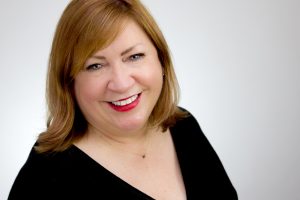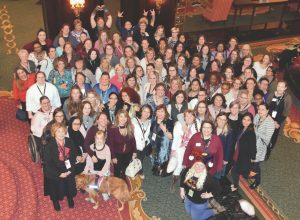Educating, Equipping, and Empowering Women with Hemophilia
Written by |

Inspired to sponsor a national conference for women with hemophilia types A and B, The Hemophilia Foundation of Michigan (HFM) became a game changer last November when it hosted an event called “Being Visible.”
Gathering 103 women representing 32 states, the event featured physicians and researchers, conference attendees, and presenters, who united to discuss key issues affecting women with hemophilia and to disseminate critical information. Physicians and researchers volunteered their time to fly to Michigan to share their knowledge.
Recently, I spoke with HFM’s executive director, Susan Lerch. I wanted to learn the story behind the conference and Susan’s thoughts on the future for women with hemophilia.
Conference inspiration
Susan said that many women inspired her desire to host the conference. She witnessed the struggles of women like Shelley Gerson, who has hemophilia type A, and Shari Luckey, who has hemophilia type B, and she saw the work of doctors like Roshni Kulkarni, who is passionate about disseminating information to assist women with bleeding disorders. Susan understood the power of bringing women and physicians together to seek understanding and motivate change. It was a previously unfilled void.
Physicians with the knowledge of how to diagnose and treat hemophilia types A and B needed to be paired with women desperate to understand their bleeding issues, she said. Combining the critical promulgation of information with community building was key. HFM wanted to facilitate this linkage. Susan felt comfortable moving forward knowing that Patrice Thomas, HFM’s program services director, was on board and would be dedicated to making the conference happen.
Missing services
When asked what services are missing for women with hemophilia, Susan responded, “Everything.” She noted, however, that some places do exist where women can get treatment.
“I am so proud of the women who are vocal and addressing the issues,” she said. “If we can get their voices heard it will make an impact on long-term care.”
Susan has a deep desire to see women empowered. “Dynamic women are going to have to educate their healthcare providers. These providers will then have to educate their colleagues. Medical schools and emergency rooms need information about women with bleeding disorders. They need to pay attention and not disregard bleeding issues,” she said.
Susan wants women with hemophilia and those who are diagnosed as “symptomatic carriers” to know that, “We hear you and we want to provide you with the information you need to get the care and support you need.”
In the future, women need to be able to benefit from all of the new hemophilia treatments coming to market. Understanding the importance of conducting research on effective treatments for women with hemophilia will be critical. This is necessary for women to be equally recognized as people with hemophilia, as well as attaining proper diagnosis and accessing appropriate care. Too often women are not treated respectfully and must wait years to obtain a proper diagnosis.
Barriers and misconceptions
When asked about the term “symptomatic carrier,” Susan said she is “not a fan.” It is way too confusing and easily misinterpreted or misunderstood by medical providers, she said.
Susan also sees a problem with a lack of consistent, innovative, patient-focused healthcare for women and girls with bleeding disorders. She believes that women with hemophilia need access to leaders in the field who want to listen. Stories of late diagnosis and lack of treatment need to be told to motivate changes in care.
Gene therapy is an amazing advancement for men with hemophilia, possibly even curative. But Susan worries about what will happen when “cured” men pass hemophilia along to their daughters. Will obligate carriers access the treatment they need or be lost? As a person with a young granddaughter who is a carrier, Susan has both a personal and professional pull to be a change agent.
Misconceptions about hemophilia abound. Many people believe that only men can have it, and numerous women are told their excessive bleeding is normal. When crying out for help, they are labeled “hysterical.” Women are struggling with real issues and a disease that goes undiagnosed for years. These affected women need support. They must be educated, equipped, and empowered to advocate for the care they need and deserve.
Long-term impact
The impact the National Conference for Women with Hemophilia had on attendees was incredible. They reported a sense of empowerment after the conference. Women are finding their voice in the fight to ensure that women with hemophilia obtain proper medical care. For Susan, this was the conference’s highlight.
“I feel very grateful to the women who came and the presenters who gave their time,” she said. “We had the privilege of starting a movement.”
Starting a movement they did. This is, and will continue to be, incredibly significant in the hemophilia community.
For information about the second National Conference for Women with Hemophilia, Nov. 1-3, visit HFM’s website.
***
Note: Hemophilia News Today is strictly a news and information website about the disease. It does not provide medical advice, diagnosis, or treatment. This content is not intended to be a substitute for professional medical advice, diagnosis, or treatment. Always seek the advice of your physician or another qualified health provider with any questions you may have regarding a medical condition. Never disregard professional medical advice or delay in seeking it because of something you have read on this website. The opinions expressed in this column are not those of Hemophilia News Today or its parent company, Bionews Services, and are intended to spark discussion about issues pertaining to hemophilia.





Leave a comment
Fill in the required fields to post. Your email address will not be published.